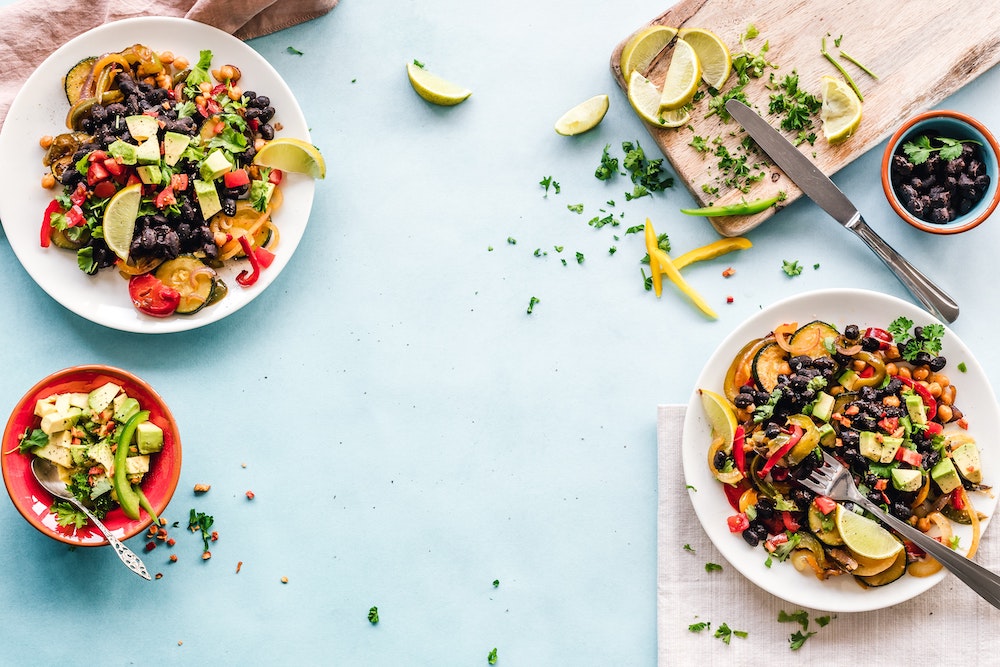
How to boost your immune system? It’s a hot topic right now, but we’re spilling the tea.
In this episode of At Home with Guinwa, Guinwa caught up with RDN Deanna, a registered nutritionist, to share the lowdown on all things health. Get ready to reduce inflammation and stress, increase energy levels (without coffee) and know the key nutrients to consume in order to stay healthy before, during and after pregnancy!
From a nursing mum diet, protein bars and sugar alternatives to daily dose of vitamins, antioxidants and even cardio, here is how to boost your immune system – for good.
Dried Fruits
“Check the label. There should be no added sugars, or any additional ingredient, other than the fruit itself. It’s a much healthier option.”
Sweeteners (agave, maple syrup and other sugar alternatives)
“At the end of the day, they are sugars. Your body still recognizes them as sugar. What we want instead is /on your stove top/ grab some strawberries, heat them up in order to create a syrup. Maybe add a little agave and that will be something tasteful for your baking.”
Protein Bars
“Protein bars are so deceptive because we look at the front of them: they have this pretty packaging. What we want to do is make sure that we’re getting high quality protein. One that I actually enjoy is plant-based pea protein. Make sure there’s the least amount of fibre to protein in them, that’s about 15 grams. We want to make sure it has the least amount of fibre because that’s what’s gonna make us feel full and give us that tidy feeling. And focus on real ingredients!”
Protein bars as a meal replacement for lunch or dinner:
“There are different types of protein bars. If we’re getting a decent amount of protein, so about 20-25 grams of protein, a decent amount of carbohydrates, because we do want carbohydrates at different meals but with lots of fibre in there – if we consider both of those, then protein bars can be an adequate source of a meal for when we need something quick and easy and we don’t really have time for dinner, we’re on the go, or being busy with a baby.”

Heat up strawberries to create a syrup, which is a great alternative for sugar in baking, according to RDN Deanna
What to Eat When You’re a Nursing Mum
“Firstly, the average woman needs 1500-2000 calories a day. When you’re breastfeeding, you’re utilising more calories. So, we actually want to replenish what we are using up during that breastfeeding. We want to increase the calories that you are eating in consideration to that. We want to make sure we’re getting adequate amount of fluids for the day. And of course, getting a wide variety of different types of foods. We want to focus on brightly pigmented fruits and vegetables, because all of those pigments, all those right colours they offer lots of antioxidant , anti-inflammatory properties, which we are sending right to the baby.”
How to Boost Your Immune System
“When we think of our immune system, we need to think of our digestive system. Because over 80% of our immune system is our digestive system. We have bad bacteria in the digestive system, but we also have good bacteria, that is probiotics, which function for immunity, but also cope with stress. Vitamin A plays an important role in our immune system and probiotics help regulate Vitamin A, so that it can be better absorbed by our bodies. That way, our immune system can do what it needs to do to fight off any viruses and infections.”
Supplementing with probiotics
“It concerns me because supplements in the US are not regulated by the FDA. So, anyone can put something on the shelves and say it has trillions of billions of probiotics in there, but no one is there to regulate what is in there is actually what’s in there.”
What weakens the immune system?
“First and foremost, when we aren’t eating good foods. Certain high fatty foods, sugary foods promote the growth of that bad bacteria in our digestive system, and that can create an imbalance, which in turn can affect our immune system. Secondly, stress plays a huge role in our immune system, it can really help reduce immunity. Sleep, for instance, we need to get adequate sleep as well as physical activities. We actually see studies that as little as 20 minutes of cardio activity two times a week can actually strengthen our immune system as well.”
Watch Guinwa’s interview with RDN Deanna here:
https://www.instagram.com/tv/CBv4MsyHZDL/?utm_source=ig_web_copy_link
Brazilian nuts
“I love Brazilian nuts, they are phenomenal! What they actually do: 2 Brazilian nuts a day can give you the recommended amount of selenium. Selenium is a type of antioxidant. Kind of like a pinball machine, adequate amounts of selenium pings around and makes sure what’s damaged internally is going to heal.”
Vitamin C during pregnancy
“Generally, it would be okay to take Vitamin C supplements. But, if there are concerning conditions, I would talk to individually to a dietician, or primary care physician. What I would like you to do is to focus on just food. So, when we think of Vitamin C, we think of oranges, but bell peppers have more Vitamin C than oranges. Kiwi, for instance, is a great source.”
Reduce inflammation with black seed oil
“Black seed oil would focus more on reducing inflammation and inflammation is the starting point for all types of chronic disease. The only concern that I have is that it’s a little irritating on the throat, so chronic use of it might not be that good for our esophagus. But if we want to reduce inflammation, again, those brightly colored pigmented foods, salmon and tuna are all great sources.”
Beat Vitamin D Deficiency
“Lack of Vitamin D can affect our immune system. It is kind of the foundation of our immune system. We want to make sure we have an optimal amount of Vitamin D. Typically, there’s not a lot of foods that have Vitamin D in them, except for salmon. Try to get 10 to 20 minutes in the sun outside everyday.”
Is it possible to not absorb Vitamin D from the sun?
“Different pigments of skin can affect how we absorb Vitamin D as well as if we are taking certain supplements for Vitamin D. There is Vitamin D2, which is the inactive form, that means your body still needs to send it to your liver and your kidneys in order to activate it. We also have Vitamin D3, which is an activated form and that I always recommend for my patients to take.”
Energize with Vitamin B12
” B12 doesn’t help with moods, but it does help with energy levels. If you are taking a B12 Vitamin, take it earlier in the day, because it will give you a little bit of energy, which we don’t want closer to bedtime.”
The lesson learnt: take care of your digestive track! We hope you’ve enjoyed this episode and that you found it just as useful as we did! Now that you know how to boost your immune system, don’t forget to share this post with your friends – so we can be all strong together.
Happy immune, here we come,
- Team Guinwa
For more health tips, check out Guinwa’s Covid-19 shopping list.
Photos: Unsplash




